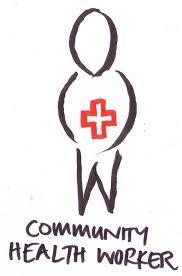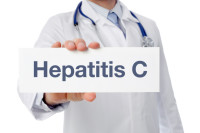- Designed for older teen and adult audiences
- Reviews the facts about the Hepatitis C virus.
- Informs about liver function, transmission of the virus, and effective prevention techniques
HCV 101




HIV Alliance provides HCV testing. The OraQuick HCV Rapid Antibody Test is a blood test taken from a finger stick. The results are available in 20 minutes. For more information on testing days and times please visit our testing calendar.

The HCV Community Health Program at HIV Alliance is designed to help people living with HCV in Lane County to stabilize and maintain their health through support, advocacy, referral services, and emergency financial assistance. Clients struggling to meet basic needs can work with our Community Health Worker to access transportation and nutrition assistance.
In September 2014, we began a partnership with Food For Lane County to insure that our HCV clients are receiving healthy food on a regular basis.
For more information about our HCV Community Health program contact Bonnie Hylton bhylton@hivalliance.org or Paul Homan phoman@hivalliance.org


The better you take care of yourself, the slower that the damage to the liver. On average, it takes 20 years to develop symptoms for chronic HCV. With alcohol or HIV, the average number drops to 7 years. So whether or not medicine is available, taking better care of your body will help.
There are 6 HCV genotypes. Treatment success is dependent on genotype and has a 40 – 80% chance of being successful. All genotypes result in the same level of liver damage.
Side effects of medicine include flu-like symptoms, muscle and joint pain, nausea, headaches, loss of appetite, dry skin anxiety, insomnia, and depression. They vary greatly in number and severity based on the person.

Hepatitis C (HCV) is a virus that is transmitted by blood only. The word Hepatitis literally means “inflammation of the liver.” Hepatitis can be caused by viruses (such as Hepatitis A, Hepatitis B, and Hepatitis C), or by drugs, medicine, alcohol, toxins, autoimmune disease, and bacteria. The liver itself performs over 500 bodily functions and when damaged can impact the functioning and health of other organs in the body. Complications of long term liver disease include:

This is a free service where you can set up customized reminders via text, email and voice to remind you about important recurring healthy lifestyle choices such as regular HIV testing, daily medication reminders, prescription refill reminders, weekly health tips and life advice and more! Oregon Reminders is a free, private and confidential (HIPAA compliant) health service.
To sign up for Oregon Reminders click here and visit their website.

This four week class for clients is focused on delicious cooking and healthy eating. Participants are provided with a healthy meal and bag of groceries to prepare healthy meals at home.
Visit the Client Social Events Calendar for more information including times and locations by county.

Medicare covers services (like lab tests, surgeries, and doctor visits) and supplies (like wheelchairs and walkers) considered medically necessary to treat a disease or condition. If you’re in a Medicare Advantage Plan or other Medicare plan, you may have different rules, but your plan must give you at least the same coverage as Original Medicare. Some services may only be covered in certain settings or for patients with certain conditions.
Medicare is funded through two trust accounts held by the U.S. Treasury:
For more information on Medicare visit Medicare.gov The Official U.S. Government Site for Medicare or contact your Care Coordinator.